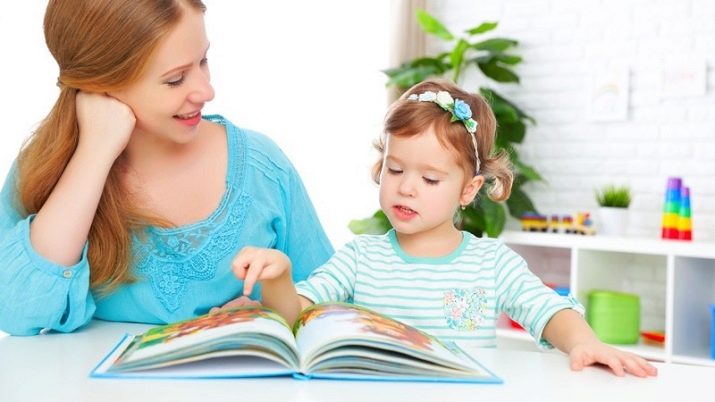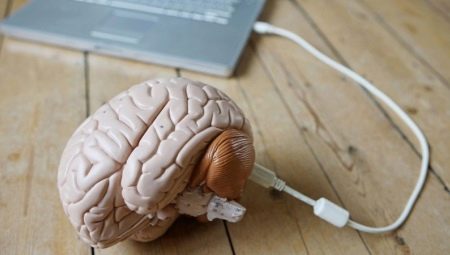“Get it out of your head, learn a better multiplication table!” Sometimes such requirements for a child cannot be fulfilled. They are not interconnected, since we store different information on different “disks” of our arbitrary and involuntary memory. The first is responsible for ensuring that we know the multiplication table, the second acts on its own and brings to our memory everything that it pleases - bright events, strong emotions, interesting images, ingenious ideas and so on.
But our task is not to follow her lead and leave room for knowledge. They can be obtained only on purpose, using an arbitrary memory.
Characteristic
The task of arbitrary memory is to record information received by its owner specially (memorizing the same multiplication table, for example). She helps us learn a poem, remember our address, passport details. Yes, in reality there are people who know them by heart, and sometimes it is actually very useful.
However, such a memory begins to form at an age when the citizen is still far from receiving the main document. In psychology, it is believed that this occurs in primary and secondary school, when the child has a conscious desire or need to learn something (remember).
The development of voluntary memory involves many factors. Including what was laid down in us at a very young age, even before the school bench.

How it works?
The level of effectiveness of arbitrary memory depends not only on what exactly we are teaching and why, but also from the methods we use to remember. Who doesn’t know the state of the exam, when, setting off for it, we feel fully operational, because behind us are a day in the library, sleepless nights over textbooks, and when we receive a card with questions, we fall into a stupor with an admixture of amnesia or, conversely, unexpectedly for ourselves, we demonstrate the best aspects of our arbitrary memory and get the highest score.
Of course, you can and should train memory in adulthood, but, as you know, all the problems come from childhood and this is what parents need to pay attention to so that their child does not encounter problems in adulthood.
- Try to have the child take part in various games, ideally - periodically take the lead.
- Try repeating already experienced events with your child, remember going to the zoo or circus. Let the child tell what he remembered this or that beast or performance on the arena, what clown jokes seemed to him especially funny. After a couple of days, return to this topic again.
- Use word games more often. Just do not immediately "load" the baby with games in the "city", "edible - inedible" for a start is quite suitable. The facilitator throws the ball to the participants and at the same time pronounces the word, the child’s task is to catch the ball if something edible was called and not catch if the name of the inedible thing was pronounced.
- Do not make the child cram something, try to evoke emotions in him, try to colorfully describe to him this or that object or event, so that not only the name, but also the images remain in his memory.
- Teach your child to understand what he teaches.
- Explain to the child how and why the knowledge gained is useful to him.

Functions
Arbitrary memory allows us not only to participate in a reader competition or competitions such as “What?” Where? When?". The knowledge embedded in our pantry of the brain through arbitrary memory is necessary both in professional activities and in everyday life. You do not get out every time a cookbook before you start cooking cabbage soup? Get it? Then you just do not know how to cook them. Maybe you are an avid traveler? Have the knowledge gained and recorded by your arbitrary memory at school never helped you?
Hence, the obvious functionality of arbitrary memory, it helps us collect knowledge.

Development features
The formation of arbitrary memory ends by about 14 years old. How successful this process has turned out depends on how a person’s life will proceed in the future. Indeed, it is voluntary memory that helps us to think logically, to draw conclusions. For its development, younger students, namely at this age, have every chance to create fertile soil, when the necessary information will literally "grow", there are many methods and techniques, including those listed above. But the main thing is to teach the child to work with information.
And for this you need to instill in him the following skills.
- Ability to highlight the main idea. To get started, just try to emphasize what is most significant in the text. It is also recommended to use various schemes, graphs, drawings in the learning process. Thus, to the aid of arbitrary memory, you will call and visual.
- Ability to work with large volumes of information. Explain to your child that you should not be afraid of a large number of lines or numbers that you need to remember. Teach you to break them down into logical chains, to unite in meaning, to seek relationships.
- Repetition of the passed material. You need to do this with an understanding of what you have learned. You need not just to pronounce the learned phrases or rules aloud, but to think about the meaning of what you are saying. By the way, just repeating the information necessary to remember out loud helps to put it faster in our memory and for a longer period.
- Work on the bugs. This is not a whim of our teachers from the Soviet past.When the child corrects his mistake, he remembers the correct spelling of the word, formula. This will not only protect him from making such mistakes in the future, but also make him work more diligently on the next assignment. Who wants to spend extra time studying when the guys chase football under the windows, and their beloved classmate has been hanging in the social network for a long time?
- The ability to make an associative series. “Pull” new information to already familiar material. As an example from the same Soviet childhood - a poem for remembering the order of flowers in the rainbow "Every hunter wants to know where the pheasant sits." Use such tricks to memorize “inconvenient” information for your brain.

And a few more tips to help make voluntary memory better for both children and adults.
- Focus on the task. If you need to learn a poem, then you should not be distracted by how the fly got on the jam, why dad (husband) climbed into the refrigerator, and what kind of SMS came.
- Sort the information you need by common or similar characteristics. Yesterday we studied the structure of the skin, and today you are trying to remember the geographical position of Italy? Boots are made of leather, and Italy, if you look at it from a bird's eye view, is very similar to a boot. Look for associations in everything.
- To memorize numbers, do the same. Instead of cramming, remember what associations a particular number causes. For example, 1970 is the year of birth, 16 is first love, and so on.
- Going to a new country, learn at least a few words in the language spoken there. It’s even better to master a number of phrases that will allow you to exchange pleasantries with staff when checking into a hotel, order food in a restaurant. So you will not only respect the locals, but also improve your memory.
By the way, the study of foreign languages even by scientists is recognized as a sure way to increase intellectual abilities. But we are striving for this, developing our brain and voluntary memory.












